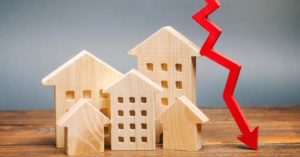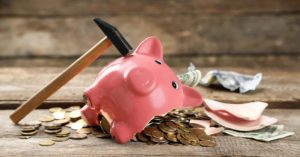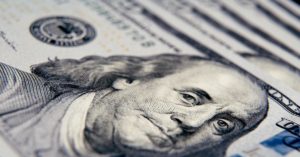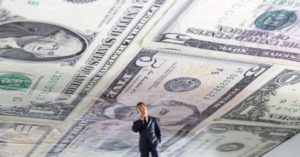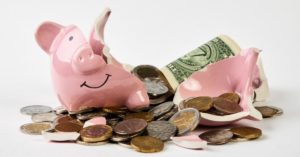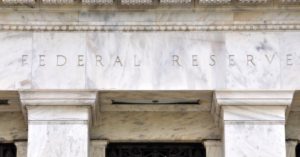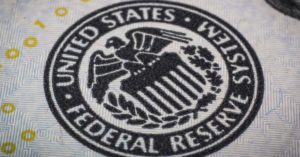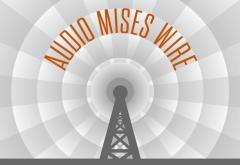Back when I was a construction lender, I thought the perfect construction loan would pay off after one day, just long enough to collect the loan fee. After all, time is your enemy in construction lending. Any of a myriad of unknowns can keep construction from being completed: the market may evaporate for what is being built, interest rates may rise to make a loan uneconomic, construction costs could increase to require a loan modification or more borrower equity (good luck), just to name a few.
Time is risk. As Gerald O’Driscoll and Mario Rizzo wrote in their book The Economics of Time and Ignorance, “As long as we remain in a world of real time, unexpected change is inevitable, and ignorance is ineradicable.”
In good times senior bank management would regret
Articles by Doug French
30-Year Mortgages Are Still a Sweet Deal—For People who Already Have Them
December 5, 2023The thirty-year mortgage, of all things, came under attack in a piece by Ben Casselman in the New York Times. The three-decade fixed rate loan is, of course, a creation of the government and adds constant fuel to the US housing market. The title of Casselman’s piece calls the most popular debt instrument for home purchases “weird,” “cushy,” and “old.” He blames low interest rate thirty-year fixed loans for the broken housing market.
Casselman points out that nearly 95 percent of US mortgages have fixed interest rates, and of those, more than three-quarters are for thirty-year terms. Once upon a time, homebuyers could only borrow half the purchase price for a home and that loan would be due in three years. The Federal Housing Association changed all of that in the
Is ExxonMobil’s Acquisition of Pioneer Natural Resources a “Threat to Democracy”?
December 1, 2023According to a Brown University professor, ExxonMobil threatens our democratic republic by purchasing another company. The totalitarian woke atmosphere in American higher education is the real threat.
Original Article: Is ExxonMobil’s Acquisition of Pioneer Natural Resources a "Threat to Democracy"?
[embedded content]
Tags: Featured,newsletter
Read More »Is ExxonMobil’s Acquisition of Pioneer Natural Resources a “Threat to Democracy”?
November 14, 2023We hear plenty about threats to American democracy: Donald Trump’s a threat, the Republican party is a threat, and any number of other people or political parties are threats. Now it’s ExxonMobil’s purchase of Pioneer Natural Resources.
Jeff D. Colgan, a professor of political science and the director of the Climate Solutions Lab at Brown University, wrote in an easily missed piece entitled “Exxon Mobil’s Pioneer Acquisition Is a Direct Threat to Democracy” for the New York Times, “The democratic argument against the proposed deal is simple. In politics, concentrated interests, like rich corporations, have powerful advantages over diffuse interests, like voters, that can distort outcomes and thwart progress.”
Dr. Colgan’s argument is, of course, all about climate
Turkey Is Sustaining Major Inflation. Something Has to Give
November 1, 2023Bloomberg reports that price inflation in Turkey was more than 60 percent in September. The 61.5 percent reading was released by the Turkish government’s statistical office. Being on the ground in Turkey for Hans-Hermann and Gülçin Hoppe’s Property and Freedom Society meeting, I can say the vibe was not hyperinflationary. The shelves are not empty and the port city of Bodrum is booming. Professor Hoppe told the crowd Bodrum has grown from a population of fifty thousand to a million for the whole peninsula. No matter the destruction to the Turkish lira, money keeps pouring into peninsula real estate, watercraft, and businesses.
“According to statistics by the Turkish Statistical Institute, the average property price in Bodrum in 2021 was around $490 per square
Bank CEOs Have Their Heads in the Clouds
October 14, 2023No matter the situation, bank CEOs believe that the Big Score is just around the corner. Then reality hits.
Original Article: Bank CEOs Have Their Heads in the Clouds
[embedded content]
Tags: Featured,newsletter
Read More »Bank CEOs Have Their Heads in the Clouds
September 23, 2023Bank CEOs always have their heads in the clouds. First, pessimists never earn a seat in the corner office. Plus, it takes a good-sized ego to climb to the top of a bank bureaucracy. A person running a bank believes they can sail the ship through any stormy economic weather.
Take John Allison. He’s the chairman of a bank holding company, Home BancShares. He told the Wall Street Journal about a time when the regulator of Home BancShares, the Federal Reserve, was badgering him to slow down on real-estate lending in 2019. “They’re telling us the construction lending space is going to blow up . . . and the world is coming to an end,” Allison recalled. “And I said, ‘You know what? I don’t see it.’”
A CEO I worked for was pithier when the regulators sang the same tune
Is the US Banking System a House of Cards Waiting to Topple?
September 22, 2023Decades of low interest rates have ruined saving in the US economy, and banks are going to pay dearly for it.
Original Article: Is the US Banking System a House of Cards Waiting to Topple?
[embedded content]
Tags: Featured,newsletter
Read More »Is the US Banking System a House of Cards Waiting to Topple?
August 31, 2023It’s the deposits. Bankers never used to worry about the money customers left in their banks. When deposited, the money was lent out while depositors could come and get their money anytime if it was a demand deposit. Thus, the depositor and the borrower had the use of the same money at the same time. Murray Rothbard called it fraud.
Now it’s 2023 and Scott Hildenbrand, the chief balance sheet strategist at Piper Sandler, tells Joe Weisenthal and Tracy Alloway on Bloomberg’s Odd Lots podcast,
And so if you had told me, Joe, or Tracy five years ago, you had me on here and you said, “There’s a bank and all they’re going to do is buy treasuries and all of their deposits are in checking accounts. And by the way, they’re going to fail,” I would’ve laughed at both of
The Backstops for Banks Are Full of Holes
July 18, 2023The Federal Home Loan Bank (FHLB) is the latest "weapon" in the government’s so-called arsenal to keep the banking system afloat. But the system needs much more than just "liquidity." It needs sound money and sound banking practices.
Original Article: "The Backstops for Banks Are Full of Holes"
[embedded content]
Tags: Featured,newsletter
Read More »After the Debt Ceiling Deal: Look for Liquidity Problems in the Markets
June 21, 2023Everything seems to be lining up perfectly for individual investors with Joe Biden and Kevin McCarthy making a debt ceiling deal. In fact, a sentiment poll reflects an ebullient investor class. According to an Investors Intelligence article titled "Assume the Positioning" (reprinted in Almost Daily Grant’s, June 1, 2023), “Just 23.3 percent of respondents are bearish on stocks, the lowest since January 2022, [when] the market scaled the summit of the everything bubble.”
But that same debt ceiling fix will unleash a torrent of US Treasury issuance that will overwhelm the markets leaving stock investors in its wake. Cem Karsan of Kai Volatility Advisors told Maggie Lake on Real Vision, “By most estimations . . . we’re going to have to issue $1.4 trillion in debt
The Bankruptcy Caravan Is Now Arriving: Time to Pay for the Easy Money
June 12, 2023As the Fed increases interest rates to reverse the inflation it has caused, firms that depended on easy money will face the bankruptcy judge. Stay tuned; there’s more to come.
Original Article: "The Bankruptcy Caravan Is Now Arriving: Time to Pay for the Easy Money"
[embedded content]
Tags: Featured,newsletter
Read More »It’s Raining Entrepreneurship at a Taylor Swift Concert
June 9, 2023The flowers of entrepreneurship bloom in the strangest places. Kirznerian entrepreneurs attending the rain-soaked Taylor Swift concert at Gillette Stadium in Foxborough, Massachusetts, determined there would be a market for the rain which had fallen near the pop diva.
The New York Post reported, “Some entrepreneurial fans are capitalizing on and trying to flog [rain] online for $250.” This $250 price is the ten dollar bill analogy Israel Kirzner stressed, as described by Murray Rothbard, when relating how the entrepreneur is a person who, “upon seeing a $10 bill in front of his nose, is alert to the existence of the money and leaps to grab it. The alert man will grab the $10 note rapidly; the less alert man will take longer to see his opportunity and to take
The Five Stages of Bank Failure Grief
June 4, 2023We are familiar with the five stages of grief. However, it is not a stretch to apply those stages to what is happening to the banking system. Right now, we are in the second stage: anger.
Original Article: "The Five Stages of Bank Failure Grief"
[embedded content]
Tags: Featured,newsletter
Read More »The Bankruptcy Caravan Is Now Arriving: Time to Pay for the Easy Money
May 29, 2023The character Mike Campbell in Ernest Hemingway’s 1926 novel The Sun Also Rises was asked about his money troubles and responded with a vivid description embracing self-contradiction: “‘How did you go bankrupt?’ Bill asked. ‘Two ways,’ Mike said. ‘Gradually and then suddenly.’”
Ground-hugging interest rates for more than a decade kept the inefficient and the incompetent in business. Now, the jig is up, with a Mother’s Day weekend corporate massacre that saw the bankruptcies of seven corporations, each with liabilities of nine figures or more—in four cases, with more than a billion dollars in liabilities each.
This cluster of large bankruptcies happening in less than forty-eight hours is the most since 2008. Libby Cherry writes for Bloomberg (reprinted on Time):
Finance Discovers Sting: “How Fragile We Are”
May 27, 2023Despite the soothing hot air from the White House and Fed officials, the financial system is becoming increasingly fragile and unstable. Maybe all of that intervention the past decade was not wise.
Original Article: "Finance Discovers Sting: "How Fragile We Are""
[embedded content]
Tags: Featured,newsletter
Read More »The Five Stages of Bank Failure Grief
May 20, 2023The talking heads on financial TV ask everyday where we are in the banking crisis. Is it over yet? After scooping up First Republic, JP Morgan’s Jamie Dimon said, “This part of the crisis is over.” After he said that, however, the shares of regional banks such as PacWest, Zions, and Western Alliance were cut in half. The market doesn’t believe Mr. Dimon.
Elisabeth Kübler-Ross described five stages of grief: denial, anger, bargaining, depression, and acceptance. On Twitter, describing the typical timeline for a banking crisis, Real Vision’s Raoul Pal posted:
It’s one bad apple,
Well maybe it’s just a few
“Banks remain strong”
It’s the evil short sellers (we are considering a ban)
Ok, now we are banning shorts
Oh, seems that didn’t work
Cut rates
That didn’t work
Finance Discovers Sting: “How Fragile We Are”
May 11, 2023An ongoing debate concerns the plunge in the four-week Treasury note yield in relation to the three-month Treasury yield. At least one tweeter claims it’s all about the coming debt ceiling showdown with the difference in rates (3.145 percent versus 5.070 percent) reflecting the risk of having liquidity tied up within three months as the debt ceiling exercise is run through DC sausage making.
On the other side is Eurodollar University’s Jeffrey Snider who tweeted in response, “The behavior of bills today, esp. 4w[eek], was way too like April 2008 not debt ceiling. Just massive demand for these things to the point that it’s 2008-style below other money alternatives. This ain’t debt ceiling rather pure collateral run.”
Snider tweeting again:
Let’s put this to rest
From Discipline to No Discipline: The Sorry Evolution of Modern Banking
April 18, 2023Every decade or so bank failures and the subsequent bailout response via central bank intervention appear. The latest jangling of depositor nerves involved US regional banks and a certain Swiss bank of great systemic importance. As James Grant writes in his book Bagehot: The Life and Times of the Greatest Victorian, “In economics, the most ostensibly rigorous of the social sciences, progress–and error, too–are cyclical; we keep stepping on the same rakes.” Sounding Rothbardian, Grant writes, “In banking, though, accidents came in clusters. Bank runs, unlike train wrecks, were contagious.” Nothing has changed.
Walter Bagehot famously urged the Bank of England—or “the Old Lady,” as the world’s first central bank is referred to in Grant’s elegant telling of Bagehot’s
Peak EV: Electric Vehicles Will Fade as Their True Costs Become Clear
April 12, 2023“On Wednesday, the Environmental Protection Agency plans to announce tough new tailpipe emission standards designed to effectively force the auto industry to phase out the sale of gas-powered cars,” reports The Verge, with the provocative headline “The End Is Nigh for Gas-Powered Cars.”
Environmental, social, and corporate governance (ESG) is the newest religion, and we all know who the practitioners are. Electric vehicle (EV) owners sing “Hallelujah” when they pull out of their garages. The investor-class ESG evangelists believe the new belief is in its beginnings. Whatever the Biden EPA does, investor Harris Kupperman thinks it’s likely just the Church of What’s Happening Now.
Kupperman, referred to as Kuppy by Real Vision’s Maggie Lake, told her, “Well, I think
Ready for Retirement? Fewer and Fewer Americans Are Saving for That Time
March 17, 2023Because of inflation and a lack of a savings ethic, Americans are less prepared for retirement than ever. The numbers are discouraging.
Original Article: "Ready for Retirement? Fewer and Fewer Americans Are Saving for That Time"
This Audio Mises Wire is generously sponsored by Christopher Condon.
[embedded content]
Tags: Featured,newsletter
Read More »Fiat Money Inflation Not Only Raises Prices but Also Undermines Division of Labor
January 20, 2023The line for the self-checkout registers at my neighborhood Albertsons stretched into the store’s produce section. Is this human progress? I wondered, scanning my groceries—this just after I had filled my car’s gas tank at a not-so-convenient convenience store near work.
Not long ago, someone not only pumped your gas and cleaned your windshield but also checked your oil and tire pressure while you waited comfortably behind the wheel of your car. Gas retailers were once called service stations for a reason. Someone provided service. Now, gas is sold at convenience stores or big box membership stores, with consumers handling the hose.
Grocery stores are newer to the customers-do-it-themselves model and are still phasing it in. The few visible cashiers are always
Edward Chancellor’s Much-Needed (But Not Heeded) Wisdom on Interest Rates
October 18, 2022The subject of time and money has hit a boiling point. Just look at Sri Lanka and Iran, where food riots have turned deadly, or, shall we say, currency riots have. People can’t buy food, and “protesters angry at the soaring prices of everyday commodities including food, have burned down homes belonging to 38 politicians as the crisis-hit country plunged further into chaos, with the government ordering troops to ‘shoot on sight,’” reports invesbrain.com.
Murray Rothbard used to joke that the masses won’t hit the barricades over indifference curves. They will charge if they can’t afford food. For the better situated, the British pound has fallen to the point where flying to London first class from New York to buy a Rolex makes economic sense versus buying one in the
The Turkish Way
October 13, 2022The Wall Street Journal reported on September 22 that Turkey’s central bank cut that country’s benchmark interest rate to 12 percent from 13 percent, pushing the Turkish lira lower as much as 0.4 percent against the dollar to a new record low after the decision. One US dollar recently bought 18.3866 lira.
The bank of Prime Minister Recep Tyyip Erdoğan made its move the week following Drs. Hans and Gülçin Hoppe’s sixteenth annual Property and Freedom Society salon in booming Bodrum, the port city on the Aegean sea which once hosted a summer population of 170,000 that has since mushroomed to 700,000.
A conference attendee, noting that Bodrum was bustling, queried the panel of Saturday speakers with a question to the effect “Why not go the Turkish way (referring to
Economic Winter Has Arrived
June 30, 2022The average card-carrying Austrian would say that the Federal Reserve is creating money by the bale, with evidence being Consumer Price Index prints of 8.6 percent per the Bureau of Labor Statistics or over 15 percent per John Williams’s shadowstats.com computation based on the way the government calculated CPI back in 1980. Surely, at best, the US dollar is only the cleanest dirty shirt in the currency laundry basket.
But Uncle Sam’s dollar continues to strengthen (vis-à-vis other government fiat), with the result being market crashes in … everything. “People have started to realize that when the dollar goes up, it’s not good for anybody,” Alhambra Investments’ Jeff Snider told Maggie Lake on Real Vision. Snider’s “anybody” doesn’t just mean stock, bond, and
When Higher Prices Are Not Inflation
January 31, 2022Monetary inflation results in a general rise in prices, often called “price inflation.” But rising prices are not always “inflation.” In any case, more government regs and subsidies won’t help.
Original Article: “When Higher Prices Are Not Inflation”
Back to 2020, the federal government’s covid-mandated shutdown of meat production plants hobbled the nation’s meat production capabilities, leaving farmers with nowhere to send their beef. This resulted in them having to cull cattle and other livestock. The uncertainty caused farmers to scale back their production at the time, which Arun Sundaram told CNBC “can affect production more than a year, year and a half down the road.”
Processing facilities had labor shortages like all other businesses, which reduced
When Higher Prices Are Not Inflation
January 19, 2022Back to 2020, the federal government’s covid-mandated shutdown of meat production plants hobbled the nation’s meat production capabilities, leaving farmers with nowhere to send their beef. This resulted in them having to cull cattle and other livestock. The uncertainty caused farmers to scale back their production at the time, which Arun Sundaram told CNBC “can affect production more than a year, year and a half down the road.”
Processing facilities had labor shortages like all other businesses, which reduced their capacity to process meat at the same clip as before the pandemic. Meanwhile, consumers regained their appetites for beef, forcing prices higher.
“You have this huge imbalance of supply and demand which is causing the prices to skyrocket,” Sundaram told
The Truth about Tulipmania
December 24, 2021When the economics profession turns its attention to financial panics and crashes, the first episode mentioned is tulipmania. In fact, tulipmania has become a metaphor in the economics field. Should one look up tulipmania in The New Palgrave: A Dictionary of Economics, a discussion of the seventeenth century Dutch speculative mania will not be found. Guillermo Calvo (1987, p. 707), in his contribution to the Palgrave instead defines tulipmania as: “situations in which some prices behave in a way that appears not to be fully explainable by economic ‘fundamentals.’”
Brown University economist, Peter Garber, is considered the modern tulipmania expert. In Garber’s view, tulipmania was not a mania at all, but is explainable by market fundamentals. The explosive
Housing Hubris: Can Home Prices Spiral upward Forever?
November 29, 2021For the Wall Street sequel, the subtitle was Money Never Sleeps. But the Oliver Stone reprisal of Gordon Gecko was the stuff of 2010. In America, a decade plus ago, money slept. Now, it truly doesn’t, with cryptocurrency prices gyrating 24/7/365. This frantic activity has spread to other asset markets.
Once real estate was stable and slow moving. Buyers would walk through a home, and walk it again with someone they trusted, before making an offer. But, as Francesca Mari titles his lengthy New York Times Magazine article, “In Austin and cities round the country, the crazy real estate market has forced regular people to act like speculators.” He wonders, “Will home buying ever be ‘normal’ again?”
Mari’s piece chronicles the trials and tribulations of millennials
Thanks to Bailouts, Wall Street Banks Are More Fragile than Ever
November 13, 2021Sorry, I’ve looked everywhere but I can’t find the page you’re looking for.
If you follow the link from another website, I may have removed or renamed the page some time ago. You may want to try searching for the page:
Search
Searching for the terms %3Futm+source%3Drss%26utm+medium%3Drss%26utm+campaign%3Dfrench+bailouts+wall+street+banks+more+fragile …
Read More »

